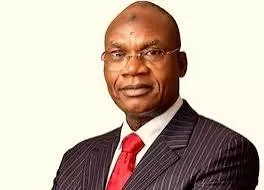
YOUR APPOINTMENT NOT FULL-TIME, MINISTER TELLS GOVERNING COUNCILS OF TERTIARY INSTITUTIONS
Minister of Education, Tahir Mamman, has warned the newly inaugurated governing councils of tertiary institutions against extravagant expenses in the course of discharging their duties.
The minister also reiterated the provisions of the laws stipulating that the appointees are appointed on a part-time basis and not as full-time employees or managers of the institutions.
He gave the warnings on Thursday, at the National Universities Commission (NUC), Abuja. during the inauguration of the newly appointed members of governing councils for federal universities, polytechnics and colleges of education.
The minister’s concerns may not be unconnected to the perceived conduct of some appointees of governing councils of institutions who reportedly compete with the institutions’ management officials for the day-to-day management of the institutions.
Mr Mamman, a professor, said their activities as members of governing councils are on a part-time basis and that emoluments and benefits of part-time employment are defined across the country.
“I will mention with some hesitation but it’s very important. Councils are on a part-time basis, they operate on a part-time basis not full time, either chairman or members,” he said.
“Those that are part-time across the country have defined emolument structure and benefits. They’re clearly defined. So let us be so guided.”
Mamman said there have been reported cases of chairpersons of councils making extravagant demands like chartered aircraft to attend functions and a house in the capital city, among others.
“We have reports of what happened in the past where some pro-chancellors wanted chartered aircraft each time they wanted to go for functions, whether it’s convocation, or a trip to Abuja,” he said.
“They want to have houses in Abuja. This is a real report. The government has, for a long time, monetised – taken itself out of the provision of houses for staff – except, of course, on the campuses.”.
The minister asked the newly inaugurated councils to avoid such large expenses, noting that President Bola Tinubu has a habit of letting go of anyone found wanting immediately after they are reported to have committed infractions.
He said: “Please let us avoid these things because we have a president who has zero tolerance for corruption. I can tell you one thing I learned from my president, among other things, if something breaks out in the media and it is negative, you are out the following day.
“The president doesn’t sit down waiting for evidence. Before you start arranging long papers, long evidence. No! He acts decisively. And usually, these kinds of things happen around quarrels about money. So councils should try to avoid that.”
The Minister also asked the new appointees to refrain from interfering with the day-to-day management of their respective institutions.
He said there is a clear line of operations between the university management and the governing councils of the tertiary institutions.
Also, he warned the councils against circumventing the university’s establishment and miscellaneous Acts and other relevant laws in the appointments of the institutions’ principal officers.
He said the process of appointing the principal officers for the institutions is clearly provided for by the laws.
“There’s no grey area in how principal officers emerge. All you need to do is to apply those laws and I tell you you will sleep well. It is when you skip the regulations and the laws that you won’t sleep well because you will be seeing a series of petitions either to you or over your head to us. Either way, it’s not good,” he said.
He also warned them against trying to stifle the activities of unions on the campuses, saying it is a constitutional and international right for both staff and students to unionise.
He asked them to see the unions on their campuses as partners and engage in periodic conversations to find solutions to the challenges of their institutions.
“Don’t treat them as if you have different aspirations. Treat unions as partners. That’s the most important thing to understand. They are partners. Our aspirations are the same as our own. A lot of time the difference is about how to go about achieving the aspirations,” he added.
Meanwhile, the Chairperson of the Governing Council of the University of Lagos (UNILAG), Akoka, Wole Olanipekun, spoke on behalf of the appointees and pledged their commitment to the progress of the tertiary institutions.Mr Olanipekun, a senior advocate of Nigeria, however, appealed to the minister to convey the councils’ message to President Bola Tinubu that the institutions should be exempted from the Treasury Single Account (TSA).
 Premium News
Premium News